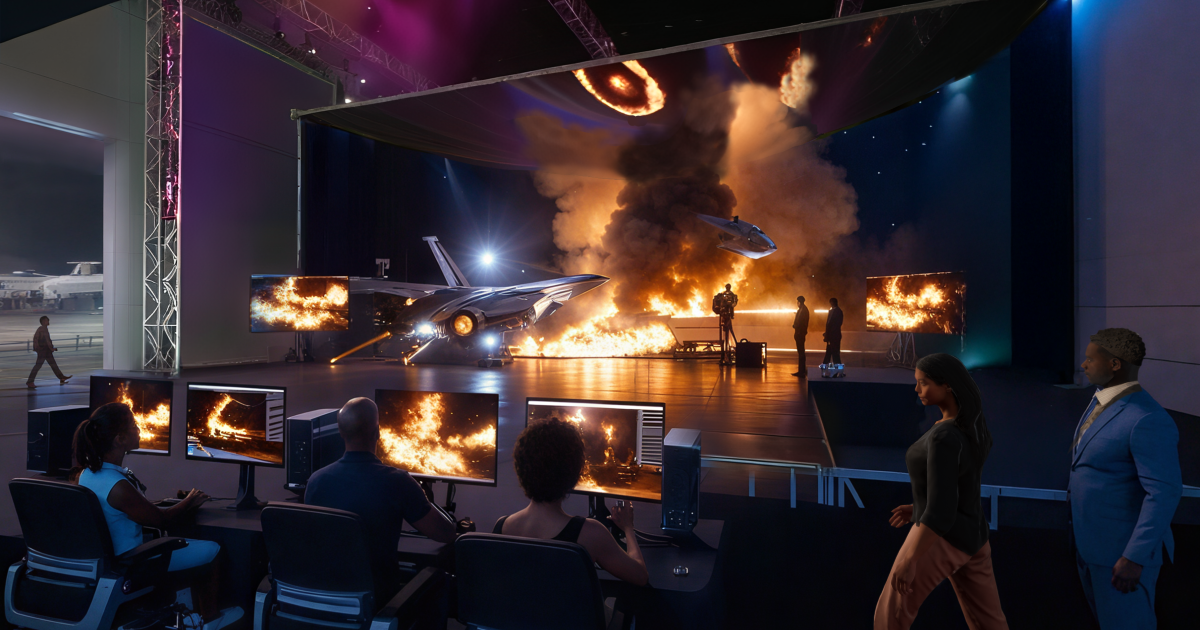LOS ANGELES – In a groundbreaking move, the University of Southern California’s School of Cinematic Arts has announced a $25 million donation from the Blavatnik Family Foundation to establish a state-of-the-art virtual production center. This strategic investment is set to transform the future of filmmaking.
Breaking: USC’s Virtual Production Center Unveiled
The 15,000-square-foot facility will feature two stages equipped with wraparound LED walls, providing students and industry professionals with cutting-edge virtual production technology. The center will also include camera tracking, performance capture systems, and lighting setups, along with classrooms and labs featuring real-time 3D design software and digital asset libraries.
$25 million donation from Blavatnik Family Foundation
15,000-square-foot facility with advanced technology
Immediate Impact on the Entertainment Industry
Virtual production has rapidly emerged as a pivotal growth area within the entertainment sector, leveraging advancements in gaming software to create interactive and fantastical backdrops. This technology has been utilized in major productions such as “The Mandalorian,” “Westworld,” and “House of the Dragon.”
As traditional film and TV production in California experiences a slowdown, the rise of virtual production has opened new employment opportunities for cinematographers, environmental artists, and lighting technicians.
Key Details Emerge
With virtual production stages, filmmakers can simulate diverse environments, such as desert planets, without the need for on-location shooting. This flexibility is revolutionizing the industry, allowing scenes to be filmed in any lighting condition at any time.
“Virtual production has just become critical to our industry, and our job is to always train students for the future,” stated Elizabeth Daley, dean of the School of Cinematic Arts. “We are very concerned that they leave the school really able to work with these tools and with enough serious knowledge of them to be able to adjust and advance.”
The center is expected to open in fall 2027.
Industry Response and Expert Analysis
Len Blavatnik, renowned for his contributions to the entertainment industry, emphasized the importance of new technologies in filmmaking. In an emailed statement, he remarked, “USC’s pioneering approach — building a virtual production studio for the future — makes this the right time and place to invest in our industry.”
Blavatnik’s involvement in the entertainment business is extensive, with stakes in companies such as A24 and Warner Music Group through his firm Access Industries.
What Comes Next for USC
USC has already established a dedicated virtual production program, training over 400 students and alumni. The new Blavatnik Center for Virtual Production will provide students with more hands-on experience, reducing time spent on set preparation.
“Virtual production is definitely here to stay; it’s going to be a standard part of production,” said Habib Zargarpour, co-head of the virtual production program at USC. “As more and more of our students and directors and artists learn about the tools, then they can contribute to the success of the technology in the industry because they know how to use it.”
Background Context and Future Implications
This development builds on USC’s long-standing commitment to innovation in cinematic arts education. The timing is particularly significant as the entertainment industry seeks sustainable and efficient production methods amidst global challenges.
The move represents a significant shift from traditional production techniques, positioning USC at the forefront of virtual production education. As the center prepares to open, industry experts anticipate a surge in demand for skilled professionals trained in these advanced technologies.
With the Blavatnik Center for Virtual Production, USC is poised to lead the charge in redefining the landscape of filmmaking, equipping the next generation of filmmakers with the tools necessary to thrive in a rapidly evolving industry.
